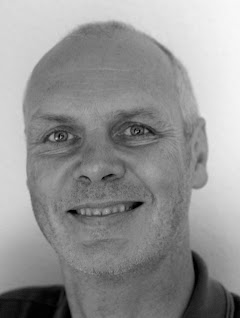Beat
I generally keep an eye on all things related to the Basque Country (mostly on the Spanish side) and Navarra. For the last sixteen years this has meant covering the political situation, Basque nationalism and the armed separatist group ETA. I also try to give context to politics and conflict by illustrating Basque life and culture in a broader sense. Over the last few years there has been a demand for images and stories reflecting Spain's financial crisis too. And I have three first-division football teams nearby, so that can keep me pretty busy at the weekends.
One Shot

“It’s not particularly dramatic, but I like this photo if only for the sheer luck of finding it. After various stalled and aborted attempts, the armed pro-Basque independence group ETA finally announced on October 20, 2011, a "definitive end to its armed activity". As most photographers will testify, the absence of war (or anything) presents certain technical difficulties when it comes to taking pictures. But the next day, driving to cover another story, I spotted a council worker painting over some graffiti, sprayed the night before, reading “ETA, The People Are With You”. I think the image captures the end of an era that had marked the lives of generations of Basques.”
Profile
I remember being amazed when I was young by the power and beauty of Richard Avedon's book “In the American West”, with its portraits of hitherto unknown characters in stark black and white against a plain white backdrop with even, natural light. It took me a while to realise how difficult that seemingly simple technique really was.
I learnt to photograph when I built a darkroom and started taking black-and-white pictures of life around me. I tried to shorten the gap between what I saw and what came out on paper.
I think the time spent actively observing the world without a camera is very important. One learns that there are some things that can be captured by a camera and others that can't.
My first big story for Reuters was the kidnapping and killing of the politician Miguel Angel Blanco by ETA. I had no idea how big the story would quickly become and I was still learning the art of taking pictures and gathering news for an agency. Things can snowball very fast and there's some tough competition.
Keep moving, look forward, make sure your transmission is working and don't run out of film or batteries. Discreetly enjoy it when you get it right. Don't beat yourself up too much when you don't. Every day you learn something.
I'm living in a very particular place at a very interesting time, and I tend to regard what I do here in Bilbao as an ongoing story. Hopefully my images will be of some use to help explain to future generations what happened here. My job has certainly allowed me to be a privileged observer in some way.
I get a kick out of discovering something no one else has noticed. The other day I went to an ugly face pulling competition and my pictures got a lot of coverage. At first I wasn't sure whether to send in the photos or not. Trusting your judgment and taking risks is very important.
The audience I have in mind when I shoot pictures is as many and varied as possible. Something considered boring here might be fascinating in China, for example.
My biggest lesson? Keep on working. Don't cheat. Treat things with respect.
I respect Alfred Eisenstaedt, who seemed to have most of the twentieth century covered. He was versatile, hardworking and often brilliant.
News and documentary photography isn't dying. It's one of the ways we understand the world.
